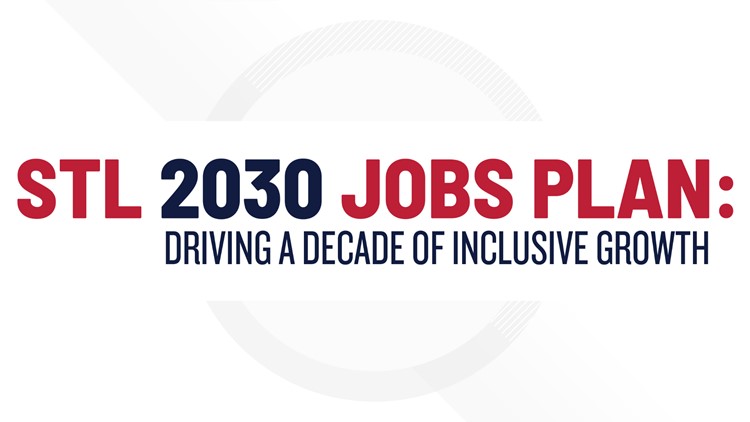ST. LOUIS — St. Louis has a lot of interest in how the next decade of job growth will play out, especially when it comes to businesses and economic development.
Greater St. Louis, Inc. is the new organization formed this year to spearhead the STL 2030 Jobs Plan, which is the first metro-wide jobs plan in more than a decade.
The plan was first released to the public last December. Over the last five months, residents from all over the region gave feedback, ideas and suggestions. Thousands of people participated in public meetings and dozens of feedback sessions – including a virtual webinar hosted by 5 On Your Side and the St. Louis American back in January.
St. Louisans showed up in a big way to voice their thoughts on the plan.
“In my work globally, I have never seen such widespread community energy, engagement and participation around a jobs plan,” said internationally recognized economic development expert Bruce Katz, who’s leading the plan. “I believe this will be a positive inflection point for inclusive economic growth in the St. Louis metro.”
All of the feedback led to several changes in the STL 2030 Jobs Plan, which leaders described as a living document that’ll continue to evolve over the next decade. Katz discussed the changes in a video available on the jobs plan website.
One of the biggest changes revolved around inclusive growth, what it means and what it’ll take to achieve. Organizers changed the draft to include these top five goals:
- Grow the number of quality jobs in the metro
- Strengthen employer commitment to buy, hire and invest locally
- Boost employment density and rejuvenation of the urban core
- Increase the number of Black workers with quality jobs
- Expand entrepreneurship opportunities for Black and Brown residents
Organizers said the plan will set up the greater St. Louis area to grow on a variety of fronts, including becoming a global center in the geospatial industry and having “anchor” businesses use their purchasing power to invest in local small businesses.
“Stewarding inclusive growth must be a top priority for our region,” said Valerie Patton, chief diversity, equity and inclusion officer of the plan. “As we move forward, we must stay focused on increasing the number of quality jobs in our metro, while also closing the racial and spatial disparities that have held St. Louis back for far too long. With clarity, focus and intention, I am confident our metro can make great strides by 2030, but we know the work to achieve social and racial justice and economic opportunity must be ongoing.”



